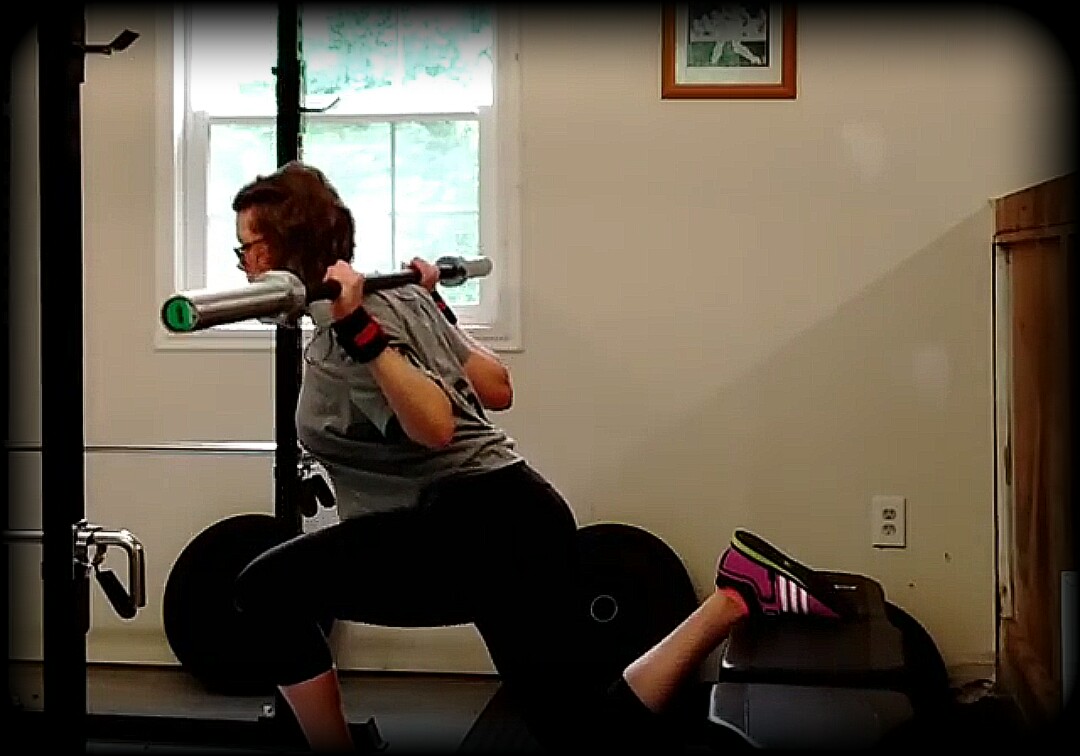
Sit-down conversations and frantic emails from injured skaters are one of my least favorite parts of being Iron Octopus Fitness. Especially when they’re in the throes of a near panic attack at all the ‘skills they will lose’ while they are out.
The sitdown conversation with an injured skater is the worst.
I get it.
I do.
I need two hands (at least) to count the number of times I’ve had to step back from roller derby due to injury. I only need one hand to count the number of times that I’ve had to step back because of life. But that happens, too.
The most recent round of frantic emails and calls got me thinking about the order in which we ACTUALLY lose skill when we need to take a break and how we can combat it.
DISCLAIMER: The ideas contained herein are for you only if you’re interested in maintaining your skill set while you are injured or on break. You are under no obligation to anyone to heal your mind or your body in a way that puts your derby career first. Know yourself and do what you need to do to take care of yourself.
BANDWIDTH
Mental bandwidth is the first thing to go when you have to unlace your skates and take some time off of your wheels.
Bandwidth refers to your ability to take in and process information. The greater your bandwidth, the more quickly you can assess and respond to what is happening on the track.
Some people call this “track awareness” but it all comes down to how quickly your brain can act as a processor to the outside world.
The size of your mental bandwidth is directly related to how many chances you get to stretch it. Once you stop spending so much time on-skates in game situations, it will shrink back up to make mental room for all those mid-conversation movie references that you like to make.
This is NEVER the thing that skaters are most afraid of losing, so we often don’t make an effort to keep it. You don’t know what you’ve got until it’s gone and all that. But it’s also a pretty easy skill to maintain while off-skates:
WATCH A LOT OF HIGH-LEVEL FOOTAGE AND ANALYZE IT AS THOUGH YOU’RE IN THE GAME.
If you need help analyzing high-level footage and stretching your bandwidth, I know someone.
MUSCULAR ENDURANCE
Remember when you first started skating hard and turning left? Oh, the lower back agony!
One of the main reasons that you can easily make it through a practice that used to make you think you were dying is because of muscular endurance. Your muscles adapted to being asked to do so much for so long and learned to ENDURE.
As soon as you remove the stimulus that forced the adaptation (e.g. skating in a circle for 2 hours at a time several nights per week) the muscular endurance you built up starts to fade, too.
This is a much harder one to combat as you rehab.
It’s sometimes NOT recommended that you recreate the muscular strain of skating as you heal. (Who’d have thought?) But the good news is that your muscle will re-adapt to this quickly.
1-2 weeks of screaming lower back pain upon your return. Tops.
REACTION TIME
This is closely related to both your loss in bandwidth and muscular endurance. It’s not that you’ve “forgotten” your skills, it’s that your body can’t execute them as quickly as you used to.
It causes a fair amount of frustration because your brain remembers how you USED TO be able to execute the skill and expects that same level of skill. But it’s unlikely to happen. You have to work to get your brain and muscles back on the same page.
Your best bet is to practice on your skates when you’re cleared, even it’s just footwork in your basement.
DON’T rush into contact or even close skating scenarios, but DO put your skates on and mess around a bit once you’ve been given the okay.
CONFIDENCE
Honestly, this could have probably gone at the top of the list and not been amiss.
The truth is that you’ve already gotten into your own head about your ability to execute skills. Whether your break was planned or a surprise, you were probably panicking about it.
Thus starts the downward spiral of your confidence.
The key here is to set realistic expectations for your return.
Realize that there is a gap between where you USED TO BE and where you CURRENTLY ARE. Your brain doesn’t always recognize that gap, so you may find yourself needing to slow down a bit more than you want to.
That old saying, “Go slow to go fast” is never truer than now.
Recognize the gap. Account for the gap. Then jump over the gap.
Want more?
If you’re interested in more exclusive content, access to my FREE resource library, and the slightly weird workings of my inner mind, you can sign up for the Iron Octopus Fitness email list HERE. Wherein I harass you weekly with all things intelligent cross training, mindset, and…other.

